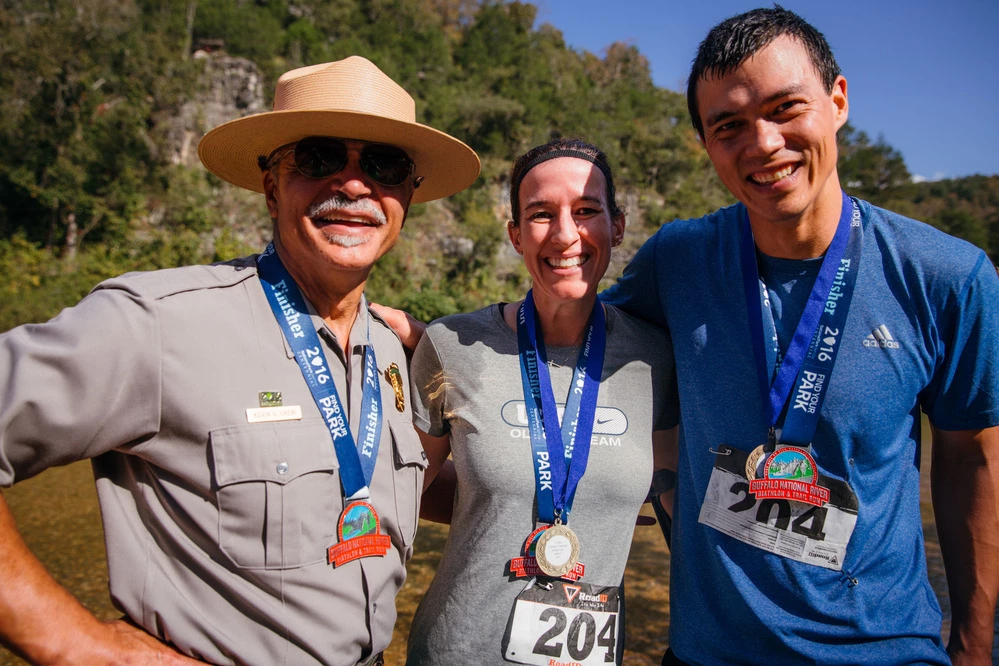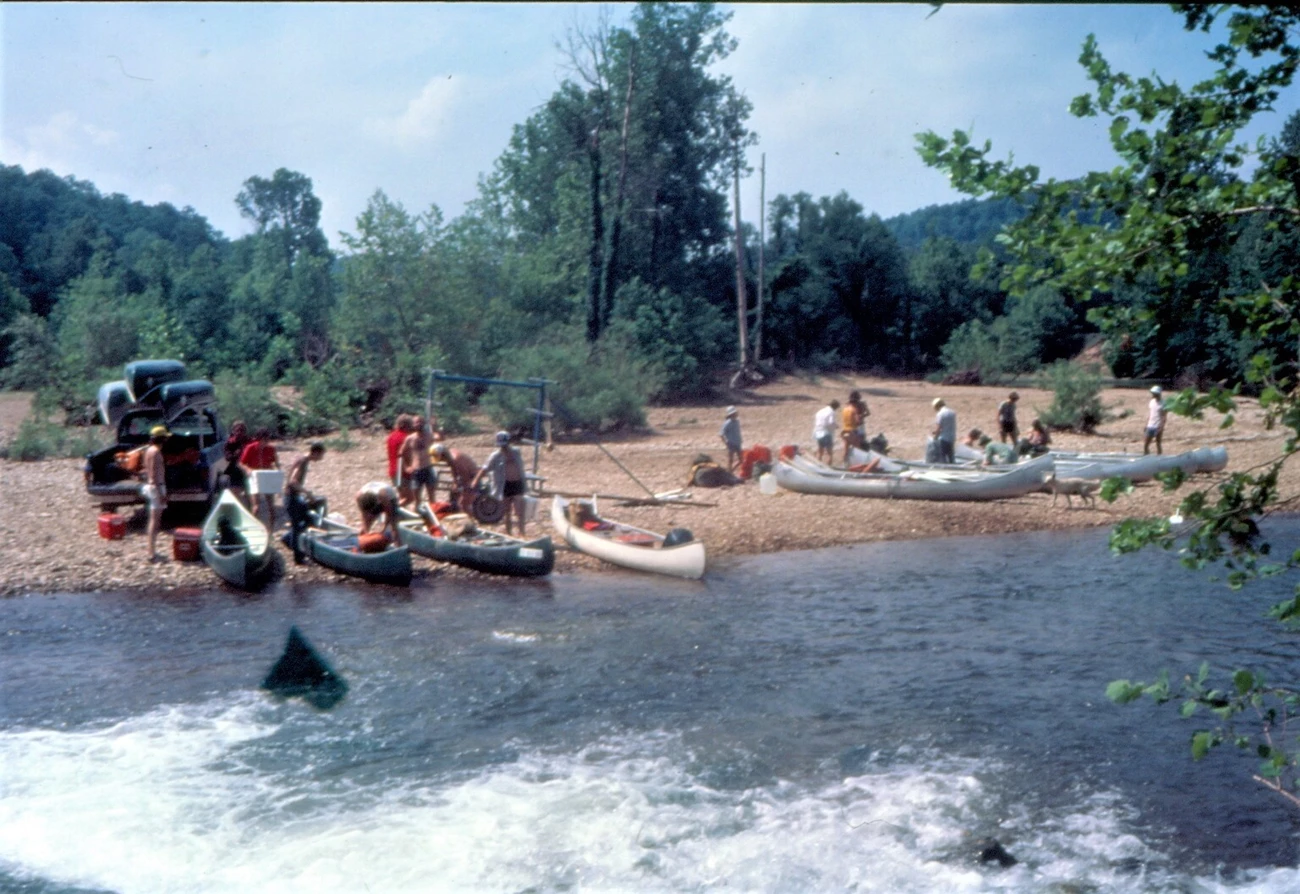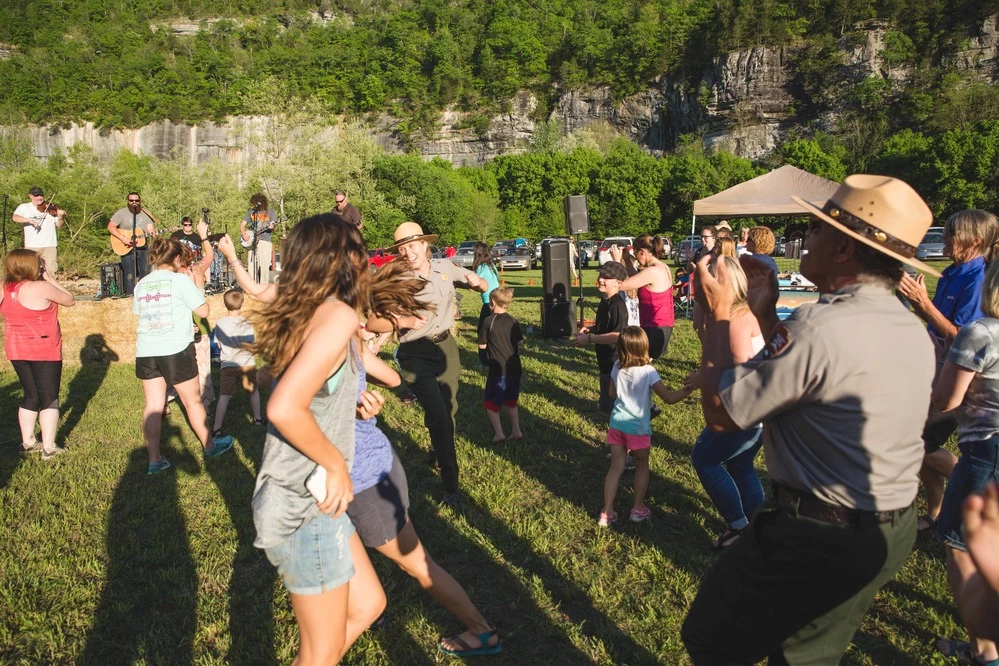"I told them how difficult it has been in this agency to constantly be, always have to be the first or the only. In so many cases throughout my career, that it wasn’t just in the beginning, or the old days. It was even at that point."
Listen
-
Episode Eight: National Park Service Reckons with Representation
In conversation with Kevin Cheri. How does the National Park Service hire a workforce that is diverse and inclusive?
- Credit / Author:
- NPS
- Date created:
- 03/13/2020
The National Park Service Reckons with Representation
KEVIN CHERI (NARRATOR): I did run into some old law enforcement reports, called case incident reports. I was looking through them and I saw case incident reports written on me.
LU ANN JONES (HOST): The pages were pink. They were tucked into a folder in a metal filing cabinet, in an office that had once been a general store.
It was 1978. Kevin Cheri was going through papers in his office. He was working his first permanent ranger assignment at the newly formed Buffalo National River Park in Arkansas.
The park's formation was contentious. Some community members were angry at the National Park Service because they had lost land to the government. It fell on the rangers to make the peace.
And these attempts to make the peace--well, Cheri found them recorded on these pink-paged incident reports. But what surprised him the most was that he found himself included.
CHERI: The statements that the rangers documented, they were threats against me. They actually were death threats against this new ranger.
They [park staff] were feeling out the community and letting them know that they had hired a black ranger. And the responses were, you know, “Well, he won’t last long,” or, “We’re going to kill him,” or stuff like that. And that was eye-opening.
JONES: Cheri was an easy target. You see, he was the first and the only African American on staff. In fact, he was usually the first and the only African American throughout a career that spanned four decades.
America has a complicated history with race. And naturally, the National Park Service does, too.
I’m National Park Service historian, Lu Ann Jones. And you’re listening to “A Sense of Place: Stories of Stewardship from the National Park Service.” In this series, we’re diving into the oral history archives, to bring you the stories of the people who shaped the parks, and the Service.
Today: the National Park Service reckons with representation.
I was able to catch up with Cheri on the phone — he’s still in Arkansas these days.
Cheri grew up in New Orleans. He first came to the National Park Service in the 1970s through a program that recruited students from Historically Black Colleges and Universities.
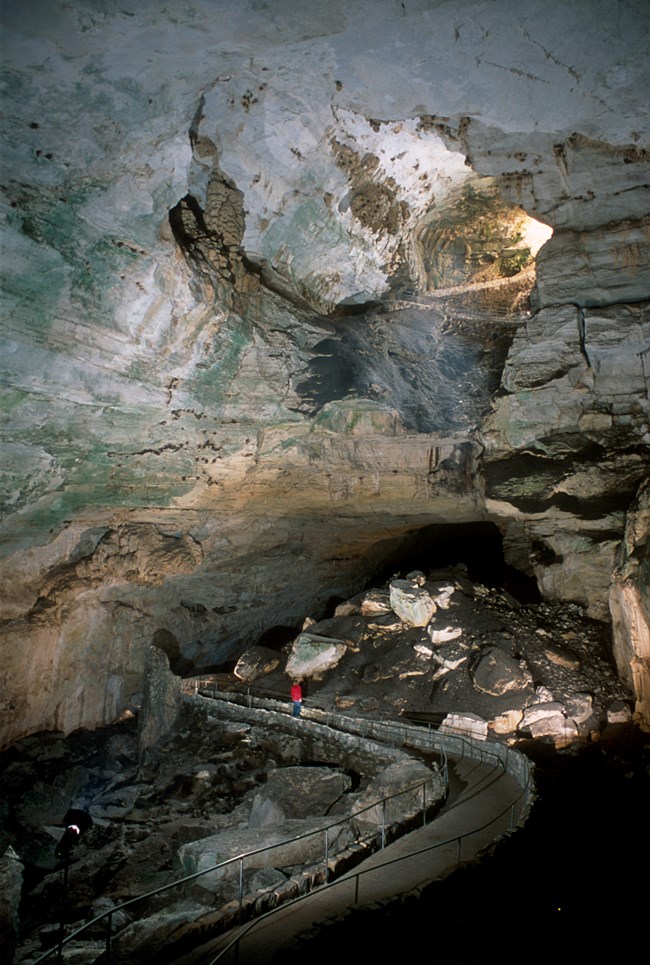
NPS
CHERI: So, everything that I was about to embark on was foreign to me. And I was completely naïve of even what I was stepping into. Despite the fact that I was somewhat of an introvert, joining the Park Service was probably the one impact in my life that changed that in me.
JONES: The NPS assigned him to Carlsbad Caverns in New Mexico. The site and the culture of the Southwest intrigued Cheri, and he returned for three more summers.
CHERI: It didn’t take me long to fall in love with the mission of the agency, as well as the people that worked there. I think I was so impressed with the attitudes of people in the Park Service that worked together. The family atmosphere, the support, and their whole energy they showed toward what they did, that it was contagious for me. And I began to consider that as a possible career.
JONES: He became a permanent ranger. He wore the uniform. He now would be formally representing the agency. But there was also something else, something really big.
CHERI: I began to realize, you know, I have a unique opportunity here. Because I’m representing Black America to them. So, I better put my best foot forward. So, I put a little pressure on myself to say well here’s my opportunity to change the way these folks will see Black people in the future, and how they may treat them in the future, if they just get a chance to get to know me.
JONES: This was an ah-ha moment to Cheri. He realized he was about to be informally tasked with a kind of educational and emotional labor that his employee handbook had never mentioned.
CHERI: I thought, well, maybe if they get some inkling of what Black people are like, maybe they wouldn’t be so hostile or negative toward them. Because they truly were, they just didn’t have a clue.
JONES: Perhaps this responsibility of representation wouldn’t have fallen on him if the workforce of the Park Service had been a bit more diverse -- but it just wasn’t.
The truth is, people of color have historically made up a small portion of the National Park Service. Like every American institution, the agency still suffers the consequences of racial segregation and exclusion even as it works to create a workforce that fully reflects the public that it serves.
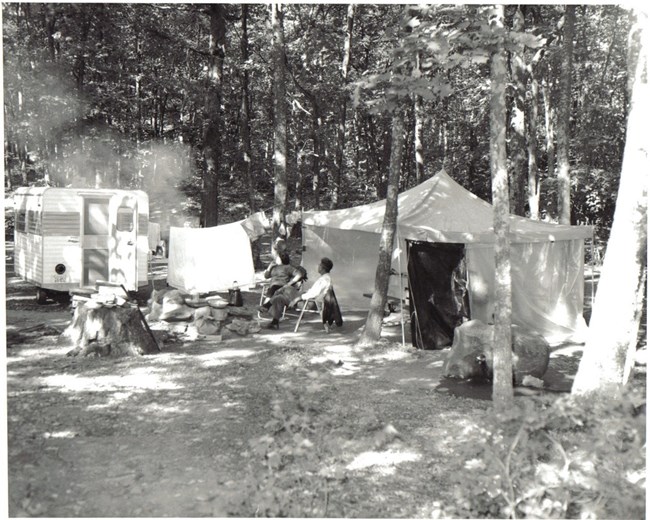
NPS
As Cheri rose through the ranks and eventually became a park superintendent, he made hiring a diverse staff his mission.
CHERI: I had no excuse. I was in a position of power. I needed to lead by example. I needed to get some diversity here.
JONES: Today, the people who visit parks and the people who work in parks are still overwhelmingly white. Researchers have many guesses as to why: the long shadow of discrimination and racial segregation in the parks themselves make people of color feel unwelcomed. The history of segregation: segregated bathrooms, picnic areas, camping spots, and cabins.
And then there are barriers to access: the cost of park admission or the lack of public transportation to remote parks.
CHERI: I don’t like the terms “underrepresented groups.” I prefer the “underexposed,” that we just don’t have exposure to these things to know and therefore what opportunities are there, or to take advantage of some of those opportunities. I mean, even my own kids, if it weren’t for me in this agency, they have yet to go to a school that highlighted anything about working for the National Park Service. You know, so how would they know, if not for me, about this agency? And so, we need to think about, as we’re trying to reach out to other groups, if we’re doing a good enough job.
JONES: Exposure was part of Cheri’s job. But he also pushed proactively for inclusivity --for a more diverse workforce. But it wasn’t easy.
CHERI: And many people in the Park Service were still very much against affirmative action. They still thought it was a quota program and didn't understand that for years these different groups, whether it was a minority group or women, were not getting the opportunities to, or even the knowledge of the agency and the opportunities within the agency to take advantage of them. So, when you were approaching them, it was so foreign--yeah, recruitment might have been a challenge, but it was not impossible. When I became a manager, I was having immediate success. Why was that? Well, it was all about attitude. I didn’t look for the excuse. And I found that people just leaned on that excuse too much.
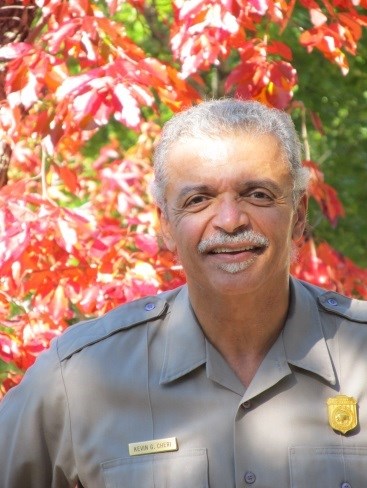
NPS
JONES: Cheri returned to Buffalo National River in 2007, this time as its superintendent. When he retired in 2018, he counted building a diverse staff as one of his greatest achievements.
CHERI: When you have accomplishments in anything you’re doing, that’s what keeps you going. So yes, there were the challenges, but it was also the success. At the minority end of it, again, that opportunity to open doors and break barriers, was another thing I was committed to. I said, you know, there’s a purpose I have now in life that I can see that I can serve in this agency, and it means putting up with some crap sometimes. But in the end, the agency will be better off if I’m doing what I think I’m doing, and what I thought I was doing right. By doing things right and being a good representative of my minority group, not only will I help maybe inspire other minorities to follow in my footsteps, but also I’m dispelling these stereotypes and opinions of people who’ve never been exposed to a black person, and certainly a black supervisor, that hopefully they can gain a positive outlook in the future, and maybe have better relationships in the future because of their opportunity to work with me.
JONES: But that accomplishment came with a price. When he attended his final meeting of park superintendents, Kevin Cheri revealed the burden he had carried for decades--and reminded colleagues of work yet to be done.
CHERI: When I got up in front of the group just to, of course, thank them for their support and just say parting words, I could not hold back my emotions. I was overwhelmed with that now this is ending and what I had experienced. I had to be honest with them. I told them how difficult it has been in this agency to constantly be, always have to be the first or the only. In so many cases throughout my career, that it wasn’t just in the beginning, or the old days. It was even at that point. I pointed it out to them that look in this room, you know, even now, I’m the only male black manager. I said, when you try to tell people things have gotten better, you can’t look at this room and say that.
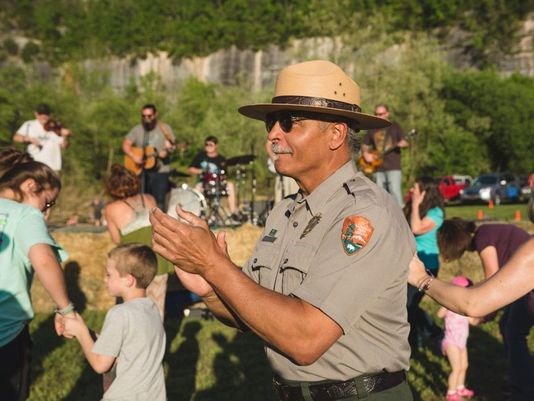
NPS
I mean, we’ve got to be honest with ourselves. I said, I’m still finding myself to be the one and only. And just to kind of explain to them how difficult that can be at times, and how hard that was. Because again, the constant worry about how you would be perceived. The constant worry about how you would be supported. And living through these experiences. So yeah, I could barely get the words out. It was a highly emotional time for me. But I kind of felt they needed to hear it.
JONES: As America grows more diverse, the diversity of the National Park Service’s workforce is crucial. This diversity fosters richer, more complex dialogue about our most treasured places. The NPS recognizes that it needs to keep asking hard questions about its own history of diversity and inclusion—and recommit to change.
This has been “A Sense of Place: Stories of Stewardship from the National Park Service.” I’m your host, Lu Ann Jones. I conducted this interview in 2018 with the help of Isis Plaza, an intern with the Historically Black Colleges and Universities Internship Program. The interview was completed for “Telling Our Own Untold Stories: Civil Rights in the National Park Service Oral History Project.”
This episode was produced by Emma Courtland and Robin Miniter for the National Park Service, with help from Otis Gray. Music by Blue Dot Sessions.
Discover More
Among the National Park Service units confront its history of racial segregation is Shenandoah National Park:- "Shenandoah National Park Is Confronting Its History," written by Kathryn Miles for Outside Online (Sepember 23, 2019).
-
"Segregation and Desegregation at Shenandoah National Park," an article by Reed Engle, first appeared in Resource Management Newsletter, January 1996 (available at Shenandoah National Park website).
Last updated: August 13, 2021

